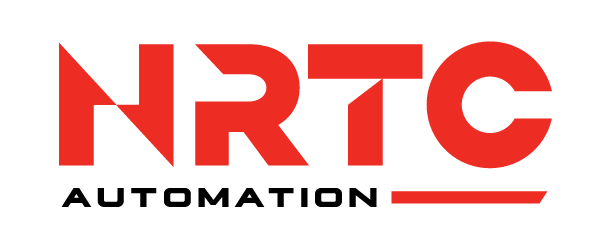Why Everyone is Obsessed with Industrial Robots
Automation is all over the news. NRTC discusses the hype and how you can jump into automation with us.
Coverage on industrial robots is growing, especially since the start COVID-19, as more industries are adopting automation to cope with new social distancing and hygiene mandates.
Are you curious about the direction automation is taking us? Read more about current predictions and how NRTC Automation can help you join the movement below.
The future of industrial automation
Industrial robots in the news
If you've been on news sites in the past decade, then you’ve seen articles and videos about industrial automation and robotics.
We won’t get into the myths of industrial robots here—we’ve already covered that topic in this blog post—but we are interested in discussing the recent boom in automation that everyone is talking about.
For example, Yaskawa Motoman recently became part of the 500k club, selling half a million robots over the course of the company’s history. FANUC is another robot manufacturer who surpassed the half-million mark.
Clearly, there is a demand for automation. Even though industrial robot sales slumped the past two years due to an economic downturn in 2019 and COVID in 2020, sales are beginning to pick up again.
Industries that use automation
Automation is the key to the future of manufacturing.
Other industries are also using automation to improve productivity, accuracy, and efficiency, such as:
Agriculture: Industrial robots and drones are used to plant, water, pick, and sort crops, reducing lead time from harvest to shipment and assisting with backbreaking jobs in the daily work of agriculture laborers.
Food preparation: Robots are making their way into the kitchen, to the relief of many who don’t love spending hours on meal preparation and cleanup. Check out Flippy the robotic burger flipper for some good old-fashioned robot entertainment.
Military and public safety: Robotic technology such as drones are being used by the military and public safety sectors. For example, with drones, rescue operations are made easier by improved visibility and access to hazardous areas caused by natural disasters.
Healthcare: Surgical robots are not new to the medical field. Doctors use them for increased precision during surgery. Additionally, and especially during COVID-19, robots are used to clean facilities by scrubbing the floor, emitting UV light, and other methods. Other industries, such as manufacturing, are using hygienic robots to maintain COVID-19 cleaning mandates.
As our world becomes increasingly digital, more industries are adopting automation to keep pace with changes in technology and public expectations.
Predictions about automation
For better or for worse, much of the buzz in the news about automation has to do with predictions of the future.
Common questions about automation include:
What industries will robots move into next?
How will businesses change in response to increasing automation?
How will automation affect human labor?
What are the potential security risks of increasing automation?
While some articles develop a doomsday scenario that robots will take over an overwhelming majority of human jobs, others negate that perspective. Industrial robots and other automation will handle repetitive physical labor and number-crunching work, but creative services, management, interpersonal work, and similar jobs will remain in the human realm.
Automation is progressing rapidly, and so are we. Changes in the labor landscape have been occurring for hundreds of years as innovations are made.
In response to advancements in technology, new jobs have been created, such as digital marketers, robot technicians, app developers, data scientists, and more.
Why you should start automating
In the manufacturing industry especially, industrial automation is the key to growth.
Benefits of adding industrial robots and manufacturing equipment to your production line include:
Increased scalability: Automation improves efficiency and minimizes downtime, getting your product to your customer sooner. You’ll be able to meet greater demand by cutting down on wasted time.
Improved workplace safety: As mentioned above, industrial robots take over the dirty, dangerous, and repetitive work that is notorious for causing musculoskeletal injuries.
Enhanced product quality: Robots are more precise, resulting in improved product quality. For example, robotic welders provide a clean and accurate weld every time so you don’t have to worry about unnecessary product recalls.
Adopting automation doesn’t have to be difficult. By using a service like NRTC Automation, you can be well on your way to competitive advancements in productivity and operation efficiency.
How to get started
Are you looking to jump into automation?
NRTC can guide you from start to finish. Our Automation Services will get you on the fast track to start increasing throughput and capacity in your facility. We’ll work with you to design, build, and engineer a custom work cell for your production needs.
We work with top auto manufacturers like Toyota, Ford, and BMW, as well as small- to mid-sized manufacturers looking to grow their businesses. With over a decade of experience, and with our professional engineers and technicians, we provide some of the best automation solutions in the industry.
Plus, we offer financing to make automation affordable for manufacturers of any size. Get ahead of the competition and start automating with NRTC today.
WORK WITH NRTC AUTOMATION TODAY
NRTC Automation is dedicated to providing high-value industrial automation and manufacturing equipment solutions to all its customers.
From decommissioning and tear out to industrial robotic training services to custom flexible work cells, NRTC is the key to integrate your workplace. With personalized training and custom-built designs, NRTC Automation is the destination for all your industrial automation and manufacturing equipment services.
Schedule a free consultation here and we’ll develop an automation plan specific to your company’s needs.

